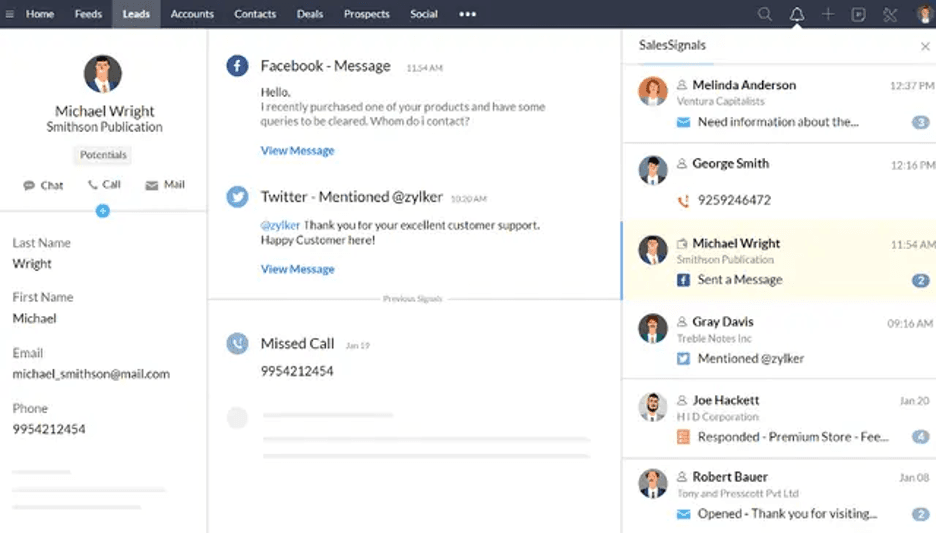Businesses with hybrid or remote employees need a CRM system that makes it easy for your sales, marketing and customer service teams to share information, gather insights and successfully nurture leads into loyal customers. That’s where Zoho CRM shines, supporting your sales communication and lead generation across all channels.

We liked how Zoho CRM’s dashboard consolidated all client communications in one place, so you could see at a glance the latest conversations. Source: Zoho
What stood out in our testing is how Zoho CRM connects employees and keeps them on the same page, whether they’re in the same office or not. The platform’s integration with communication tools like Microsoft Teams and Google Chat makes it easy for remote team members to share updates and reports so they can make informed decisions and move a sale forward.
Its user-friendly interface and extensive onboarding resources make it easy to get started, so you and your team can hit the ground running without a steep learning curve. One of the things we really appreciated is how Zoho brings all your sales communication channels (email, phone, chat, social media) into one place and notifies you of any mention or update, ensuring you can stay on top of all customer communication and take immediate action when needed.
To keep your team running smoothly, Zoho’s flexibility is a big plus. You can customize the system’s look, feel and functionality to suit your business’s specific needs, ensuring consistency in data input, workflows and reporting and boosting productivity.
Additionally, Zoho’s built-in AI assistant analyzes patterns in your sales activity and customer behavior to provide in-depth analytics and help streamline workflows, sales communication and data input. Another feature we think small business owners will appreciate is Zoho’s app marketplace, which offers a variety of tools to integrate with the CRM, including Zoom, Trello, Dropbox, Mailchimp and QuickBooks, further enhancing remote work efficiency and performance.
























